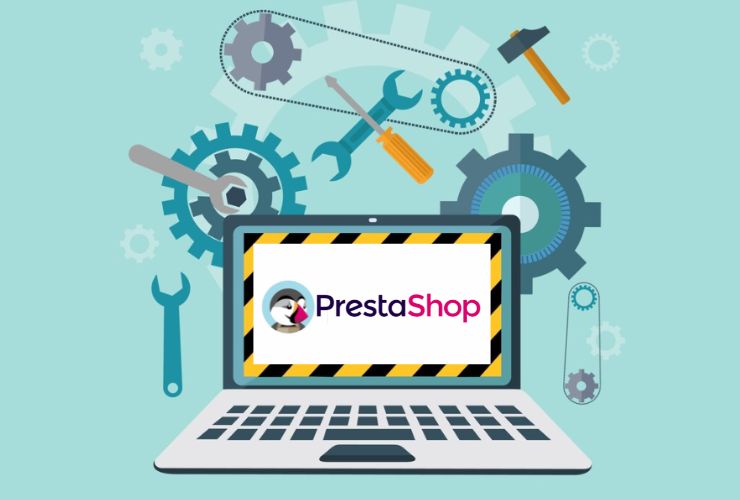Magento has gained a reputation as one of the most popular eCommerce platforms, powering thousands of online stores all over the globe. Its flexibility, scale, and the many features it offers make it a popular choice for any type of eCommerce—large to small businesses. Any store owner, from small startup to a large enterprise, can use Magento to build a customized, feature-rich online store.
However, its popularity does open it up to criminal activity. Hackers often capitalize on vulnerabilities found in your Magento stores to steal sensitive data, compromise customer trust, or simply cause financial damage and reputational harm. A breach of security can lead to lost revenue in the future, damaged brand reputation, and potential legal consequences, making it incredibly important for store owners to see Magento’s security as a priority.
Preventing vulnerabilities to your eCommerce store is not just as simple as installing security patches: it is about having a full security strategy in place to help protect your store, your customer data, and to ensure your business operates smoothly. Today’s blog will explore the most common vulnerabilities in Magento and helpful methods to strengthen your store to prevent any attacks or breaches.
1. Keep Magento Core and Extensions Updated
Outdated software is a common entry point for attackers. Even security breaches, happen as a result of store owners taking too long to update their Magento core, themes, or third-party extensions.
Best Practices:
- Update regularly to the latest stable version of Magento core
- Update all extensions and plugins to the latest version of security patches and themes
- Subscribe to Magento security alerts and newsletters
- Remove any plugins or extensions you do not use, as this will reduce the attack surface
Keeping your platform and extensions up to date will ensure that vulnerabilities that are known are patched, and you will reduce the risk of being breached.
2. Use Strong Authentication and Access Controls
Weak passwords and poor management of users accounts are a major security risk. Attackers will take advantage of default credentials or compromised credentials to gain access to the admin account.
Best Practices:
- Use only strong, unique passwords for all admin and user accounts
- Require two-factor authentication (2FA) on logins
- Restrict access to the admin panel to a trusted IP address
- Use role-based credentials to properly privilege user accounts to only users that need access
These changes will prevent unauthorized access to the admin page and will lessen your vulnerable risk of breach from brute-force or compromised credentials used against your store’s Admin account.
3. Prevent SQL Injection and Cross-Site Scripting (XSS)
Magento stores are often targeted exploits of SQL injection and XSS, which can lead to a loss of customer information, including payment details, order details, and customer details.
Best Practices:
- Leverage the built-in input validation and sanitization capabilities that Magento offers.
- Do not use SQL queries, other than through Magento ORM and API methods.
- Sanitize the user inputs for all areas of your store, including forms, search bars, and feedback posts.
- Scan for vulnerabilities regularly and patch any possible entry point.
By using the above best practices, it will be more difficult for attackers to use your web store to inject harmful code into your database and website.
4. Secure Your Admin Panel
The Magento admin panel is another highly sought-after target by hackers. Gaining access to the admin panel can potentially lead to the full compromise of your store, including changing products, orders, and customer data.
Best Practices:
- Change the default admin URL to a custom URL that is difficult to guess.
- Limit the number of login attempts in order to make brute-force attacks difficult.
- Regularly monitor the activity of admin logins; also audit admin users.
- Enforce HTTPS encryption for access to the admin panel to protect user credentials.
By securing the admin panel, complicated and sensitive areas of your store will be secured to unauthorized access.
5. Utilize HTTPS and Evaluate SSL Certificate Options
Sensitive data sharing across unencrypted channels can be compromised. This is why SSL certificates are not just vitally important to security, but for building trust.
Best Practices:
- Every session should be fully encrypted, including traffic to and from the SSL certificate.
- Have HTTPS enforced across the entire site, including login, checkouts and customer accounts/portals.
- Verify any third-party integrations and payment gateways maintain the same standard for communication on the secure channel.
- Utilize trust indicators: HTTPS, trusted secure certifications and badges on checkout pages to inform your customers that the site is secure.
SSL encryption protects the data that is being passed by your customers, while also establishing credibility for your store.
6. Backup Regularly and Monitor Activity
No matter how many preventative measures are in place, there still exists the possibility of a compromise to your data by hacking, server failures or accidental deletion of data. A backup and monitoring system minimizes downtime when needed and continues business after the incident occurs.
Best Practices:
- Schedule a backup of your databases and files regularly and store to a secure offsite file server
- Periodically, test restoring the backups to ensure they are functional
- Audit activity logs for abnormal activity, bad logins and unusual traffic
- Keep file version backups as a means to rollback quickly if compromise occurs
Regular monitoring and backups lessen downtime and getting back up-for-service.
7. Choose a Secure Hosting Solution and Server Configuration
Having a safe hosting environment is an essential piece of the Magento security puzzle. If your hosting provider has not configured your server properly, it could result in exposing your store to attacks.
Best practices include:
- Selecting a hosting provider with security policies applicable to Magento.
- Consistently keeping server software (PHP, MySQL, Apache/Nginx, etc.) patched and updated.
- Disabling any unneeded services and ports to decrease exploitable attack points.
- Implementing firewalls, malware scanning and/or intrusion detection systems.
- Regularly reviewing server logs to catch suspicious activity early.
With a secure hosting solution, you can rest assured your unique Magento store is hosted within a strong and insightful environment.
8. Educate Your Employees And Users
Human error could be the largest contributor to all the breaches. Educating your team on security practices is equally as important as educating your users on the mechanics of security practices.
Best practices include:
- Educating all users on how to create secure passwords, and how to identify phishing attempts.
- Limiting access to systems important for operations as to both the user’s role and responsibility.
- Encouraging regular reviews and assessments to determine whether suspicious activity is legitimate.
- Documenting best practices when it comes to security, and documenting how to respond in case of a breach.
- A well-educated team provides an additional layer of security to your Magento store.
Conclusion
Magento is a powerful and flexible eCommerce platform, but its popularity makes it a target for cyberattacks. By keeping your software updated, implementing strong authentication, securing the admin panel, enforcing HTTPS, performing regular backups, and choosing secure hosting, you can significantly reduce the risk of vulnerabilities and hacks.
Investing in Magento security best practices not only protects sensitive customer and business data but also strengthens your brand reputation, builds customer trust, and ensures a seamless shopping experience.
A proactive approach to security is essential for maintaining a reliable, trustworthy, and high-performing Magento store, safeguarding your business from potential threats now and in the future.
Contact Us Today













 Database Development
Database Development












































